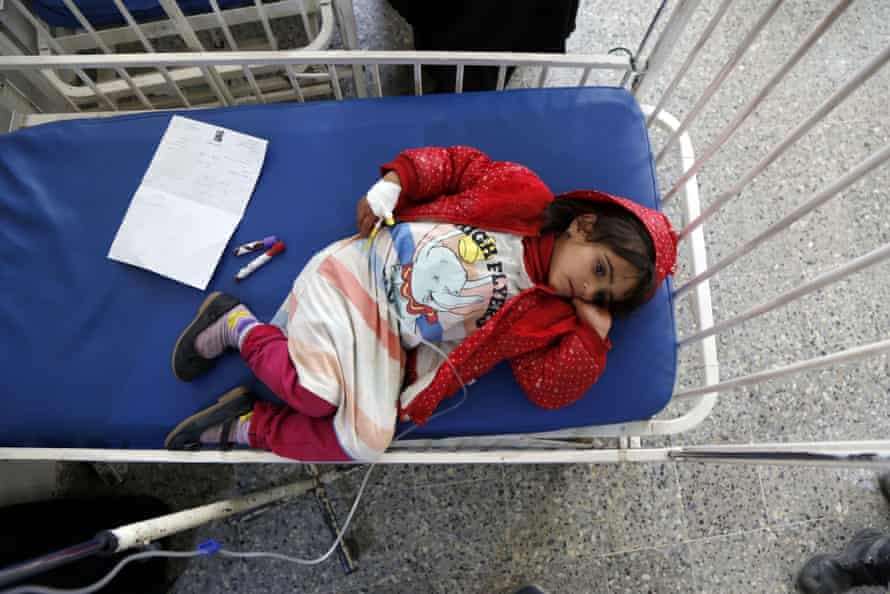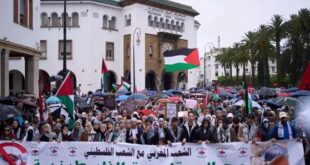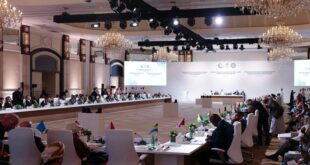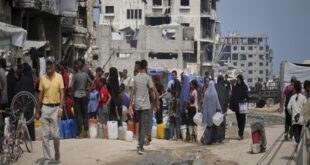
The Islamic fasting month of Ramadan, which started this week, is the biggest period of giving for UK Muslims.
According to research by the Muslim Charities Forum, in 2018 the UK’s estimated 3.5 million Muslims donated more than £120m to global charitable causes during Ramadan, at a rate of £46 every second.
This year, after the UK government’s decision to drastically slash aid to Yemen, some of the leading Muslim charities in the UK are focusing on Yemen for their Ramadan campaigns. The cuts have been widely condemned.
Yemen is grappling with the world’s largest humanitarian crisis, and is on the brink of famine. About 80% of Yemen’s population – more than 24 million people – are in need of humanitarian assistance, including more than 12 million children, according to Unicef. Nearly 2.3 million children under the age of five will suffer acute malnutrition in 2021.
Muslim Hands is hoping the festival period will help it raise the £6m it wants to spend in the country this year. In 2020, the charity raised £32m – £10.6m of it during Ramadan. About £1.1m went towards its work in Yemen.
Abdul Rahman Hussein, country director for Yemen, said the UK government cuts were “shocking” and would have a huge impact. “Imagine, every 10 minutes one child under five dies in Yemen,” he said.
“They need to increase not decrease the funds,” he added. “After six years of war, it has gone from bad to worse.”
On a recent trip to the country, Hussein said he saw children as young as six fainting from hunger at school.
At one aid centre, a family asked him to take their children because they couldn’t provide for them any more. “They said ‘we can’t feed them, can you just take them?’” Hussein recalled.
Muslim Hands provides packs of basic food items – including flour, rice, oil and beans – to feed a family of seven for a month.
“A simple pack of food is the difference between life and death,” Hussein said. “[Millions of Yemenis] don’t know when they’re going to have their next meal.”
As Britain cuts aid to war-torn country on brink of famine Muslim charities are directing donations towards feeding population
The charity has set up three bread factories in two cities. It costs about £360 a day to feed 5,000 people with two loaves of bread at each of these facilities. It hopes to expand the number of factories to five.
“If we don’t provide these loaves of bread, people simply don’t eat. If we don’t give these food parcels, people don’t eat,” Hussein said.
The charity also runs school feeding programmes and a medical centre in the Abyan region. The centre treats up to 90 people a day, mainly children. It offers emergency care, nutrition and immunisation services, as well as reproductive and maternal care. It costs £350 a day to run the centre.
Hussein, who is a Yemeni and has lived in the UK for the past 23 years, said he used to travel to his homeland almost every year.
“It’s a country that I don’t recognise any more. I’ve never seen a situation like this in my entire life,” he said.
Ramadan is the biggest fundraising campaign for Islamic Relief, the UK’s largest Muslim charity. Last year, the holy month brought in more than 40% of its annual income. The organisation said a large number of Muslims choose the Ramadan period to pay their compulsory charity, known as zakat.Advertisement
Islamic Relief said it raised more than £3.5m for Yemen last year, 80% more than in 2019. Its Yemen appeal has continued to grow over the past 12 months.
The charity has projects in 17 of the country’s 22 governorates. It supports nutrition programmes in 155 health centres and builds and repairs water and sanitation facilities.

“Every month, we support 2.3 million people’s access to food,” said Muhammad Zulqarnain Abbas, Yemen country director for Islamic Relief.
Abbas said many families in Yemen who are fasting are not able to have proper food at the time of Sahur, the pre-dawn meal before the fasting starts, and the Iftar, the evening meal that marks the end of the day’s fasting.
“This makes their life really miserable,” he said. “And sometimes we have witnessed by our own eyes in different areas when we are in the field that people are compelled to break their fast in the evening with simple water and that water is even not clean.”
Abbas said the situation with Covid-19 in Yemen is critical. “If you go to the graveyard to a funeral for one person, you’ll find three to four other bodies coming for burial.”
Fadi Itani, from the Muslim Charities Forum, described the crisis in Yemen as “a political problem as a result of the failure of the international community”.
“Although charities are doing amazing work their intervention is like a little plaster on a very deep wound,” he said.

By Saeed Kamali Dehghan – theguardian.com




 World Opinions Débats De Société, Questions, Opinions et Tribunes.. La Voix Des Sans-Voix | Alternative Média
World Opinions Débats De Société, Questions, Opinions et Tribunes.. La Voix Des Sans-Voix | Alternative Média




